Here’s What Happens to Your Body When You Overeat On Thanksgiving
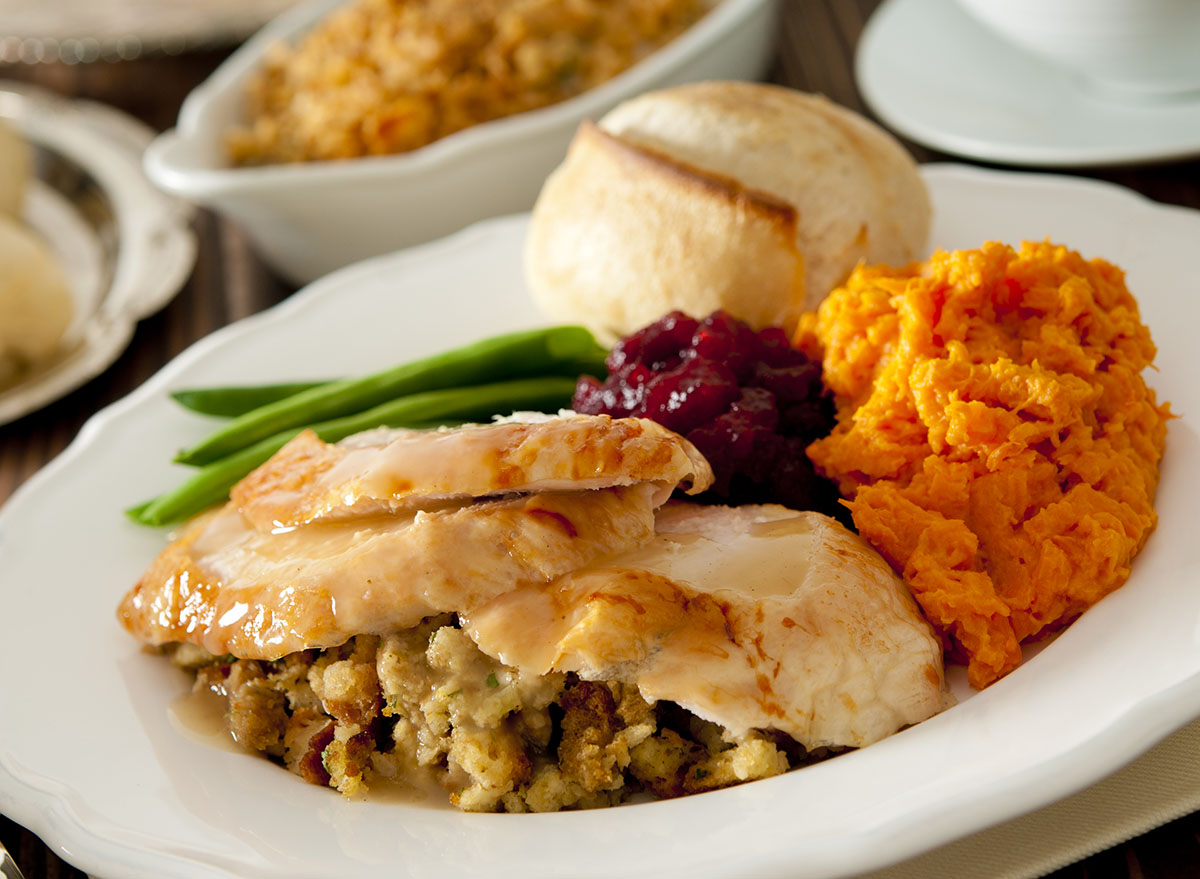
You wake up the morning after the beloved Turkey Day, you might notice something about you feels a little off. You may feel like you have a headache or you may even feel a bit bloated. So, what is it exactly that happens to your body the day after Thanksgiving?
We called on three of our most trusted registered dietitians to give us a few reasons why you may not feel too great the day after the feast. You’re not alone—it’s a very real thing that happens!
Here are 10 possible things that could happen to your body after overeating on Thanksgiving. And as you try to get back on track, try out any of the 21 Best Healthy Cooking Hacks of All Time.
You feel thirsty.
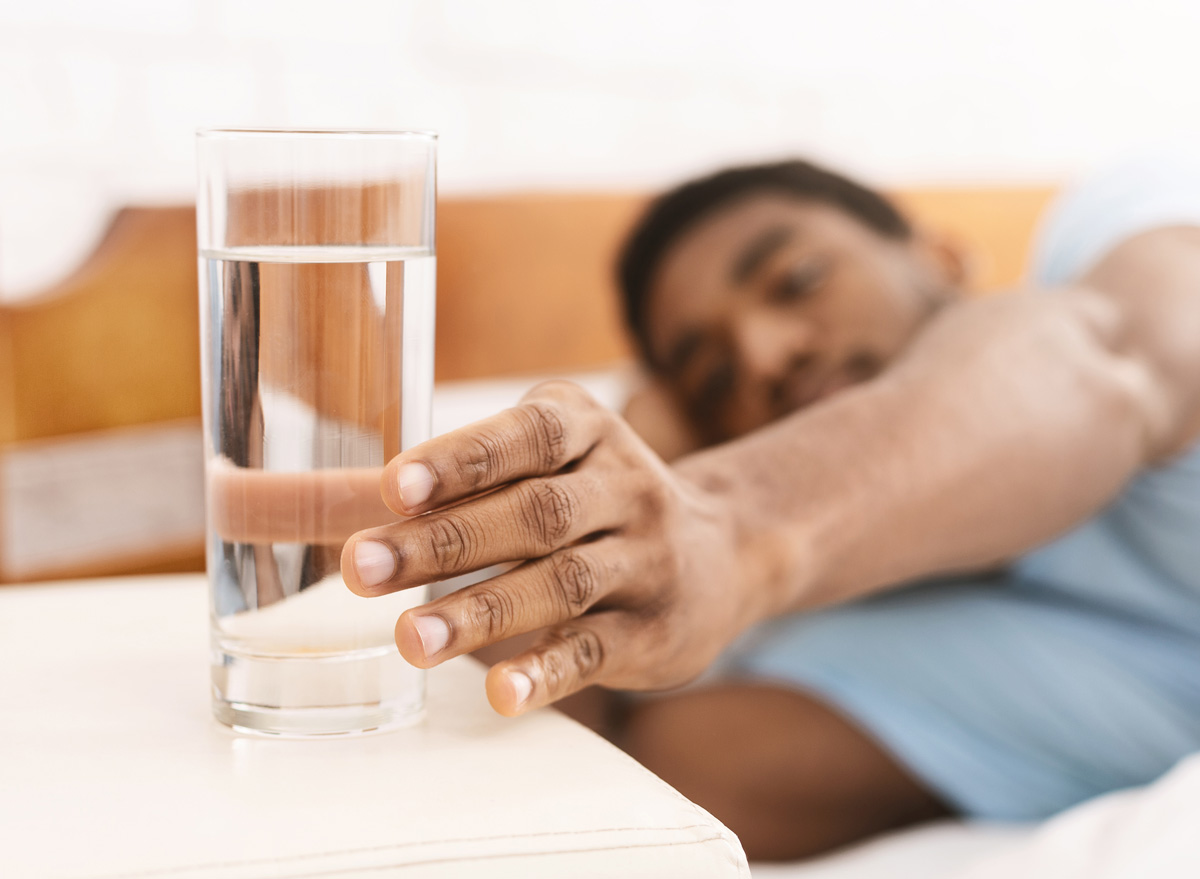
Have you ever woken up in the middle of the night after a day of drinking or eating a lot of sodium-filled foods such as meat supreme pizza? The same can happen the night following a massive Thanksgiving feast.
“Maybe you downed a few glasses of cider and water during the big meal, but [does] your mouth feel like the Sahara Desert afterward?” asks Patricia Bannan, MS, RDN, nationally recognized nutritionist and healthy cooking expert. “Eating lots of salty foods, such as stuffing, mashed potatoes, turkey, and gravy, can leave you feeling not only puffy and bloated, but [also] extremely thirsty.”
The solution? Make sure you continually hydrate throughout the day so that you don’t disrupt your sleep, and drink plenty of water the day after as well.
You have heartburn or acid reflux.
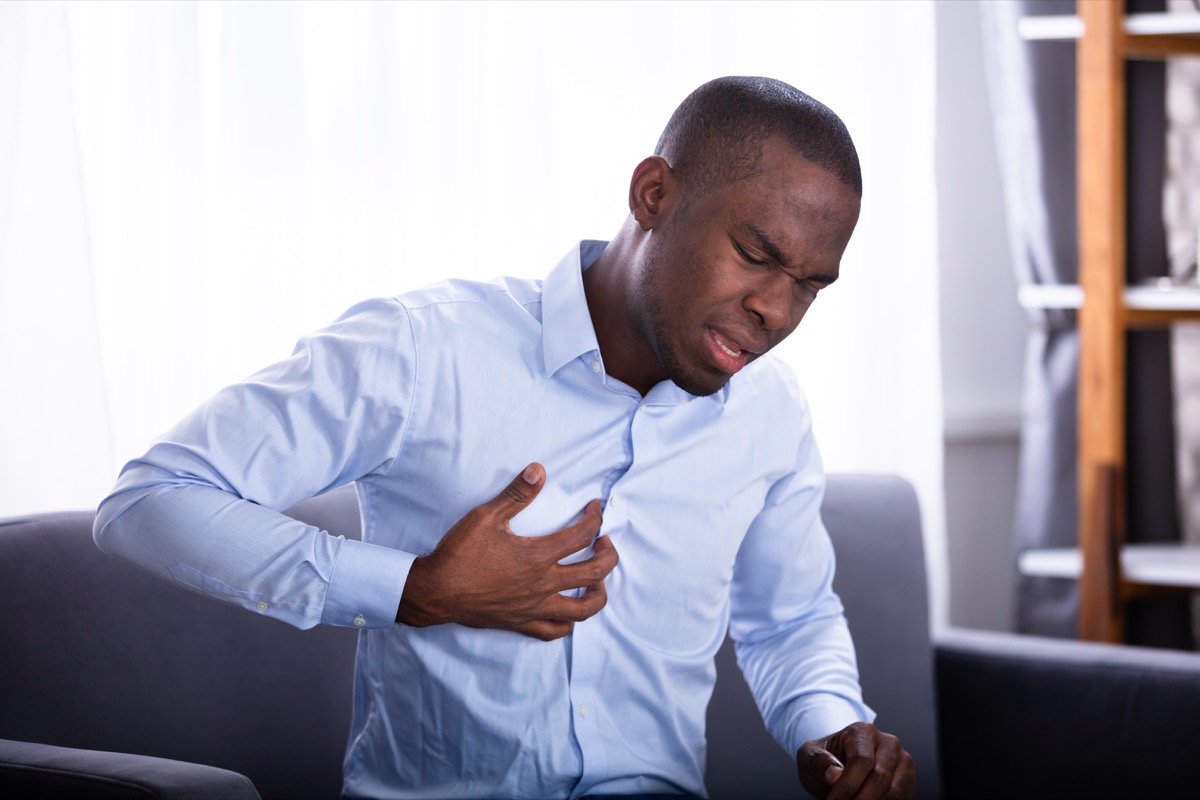
“When we eat, our stomach produces hydrochloric acid to help with digestion. However, eating large amounts of food at once causes high amounts of acid to be produced that can end up making their way to the esophagus, causing heartburn,” explains Kelli McGrane, MS, RD for food tracking app Lose It!
Fat is more difficult for the body to break digest, and as a result, meals that are higher in fat are more likely to cause heartburn or acid reflux.
The solution? Watch your fat intake on the day of Thanksgiving. A meal-tracking app can help you monitor how much fat you’ve consumed, which may encourage you to skip that extra piece of pie.
You may be using the restroom a lot the next day.
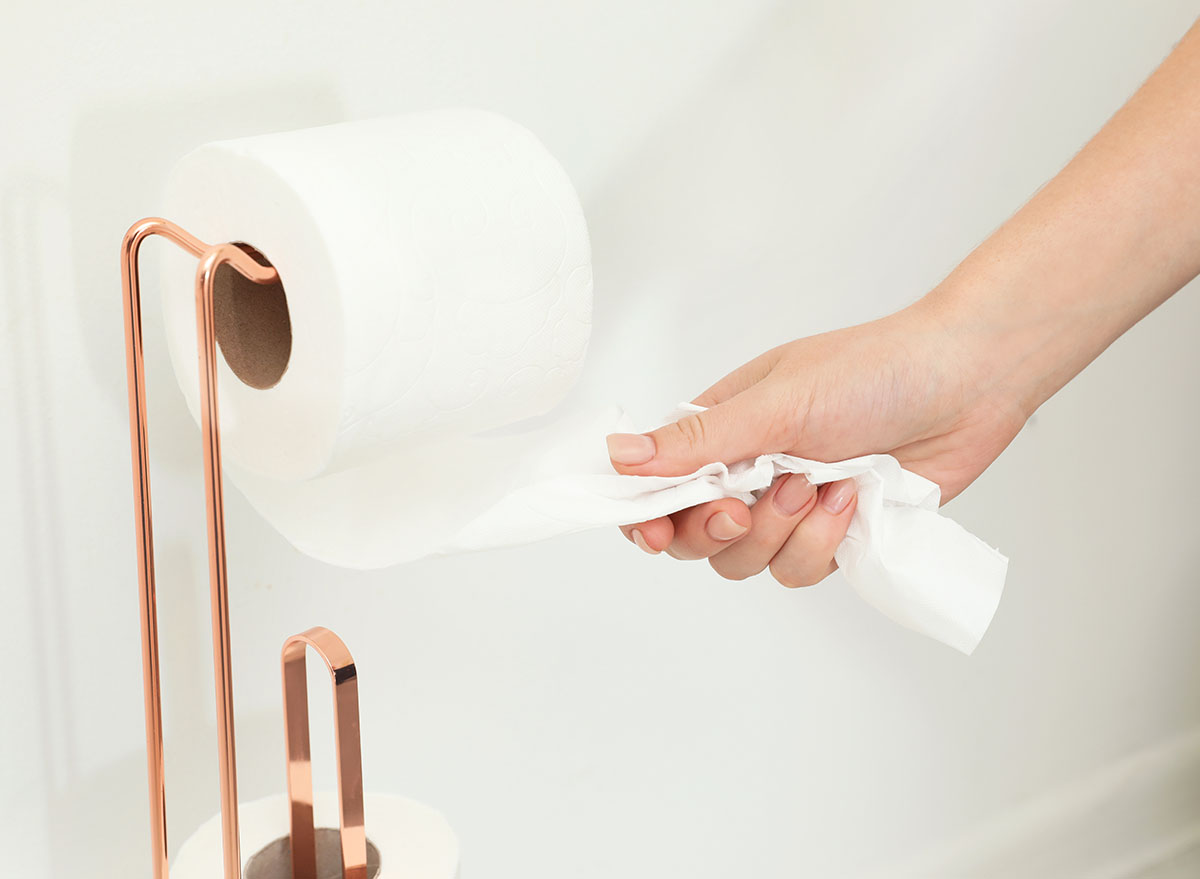
Sydney Greene, MS, RD, points out that Thanksgiving can be hard for those with dietary restrictions, especially food intolerances.
“Family and friends can have the best intentions, but unless we make dietary restrictions or food rules explicitly clear, we can’t expect a dish to be devoid of the trigger,” she says.
Many boxed foods such as stuffing and gravy mixes contain artificial and processed ingredients that are derived from sources of gluten and dairy. Two such ingredients include sodium caseinate and malt flavoring. If your body isn’t used to gluten or dairy or it rejects it, this can lead to gastrointestinal distress followed by several trips to the bathroom. Plus, eating these foods you usually avoid—let alone overeating them—just spells trouble for your stomach.
The solution? Come to dinner with a few of your own covered dishes.
“Offering to bring your own homemade dishes is a great service to the host, and keeps your GI system safe,” says Greene.
You feel lethargic.
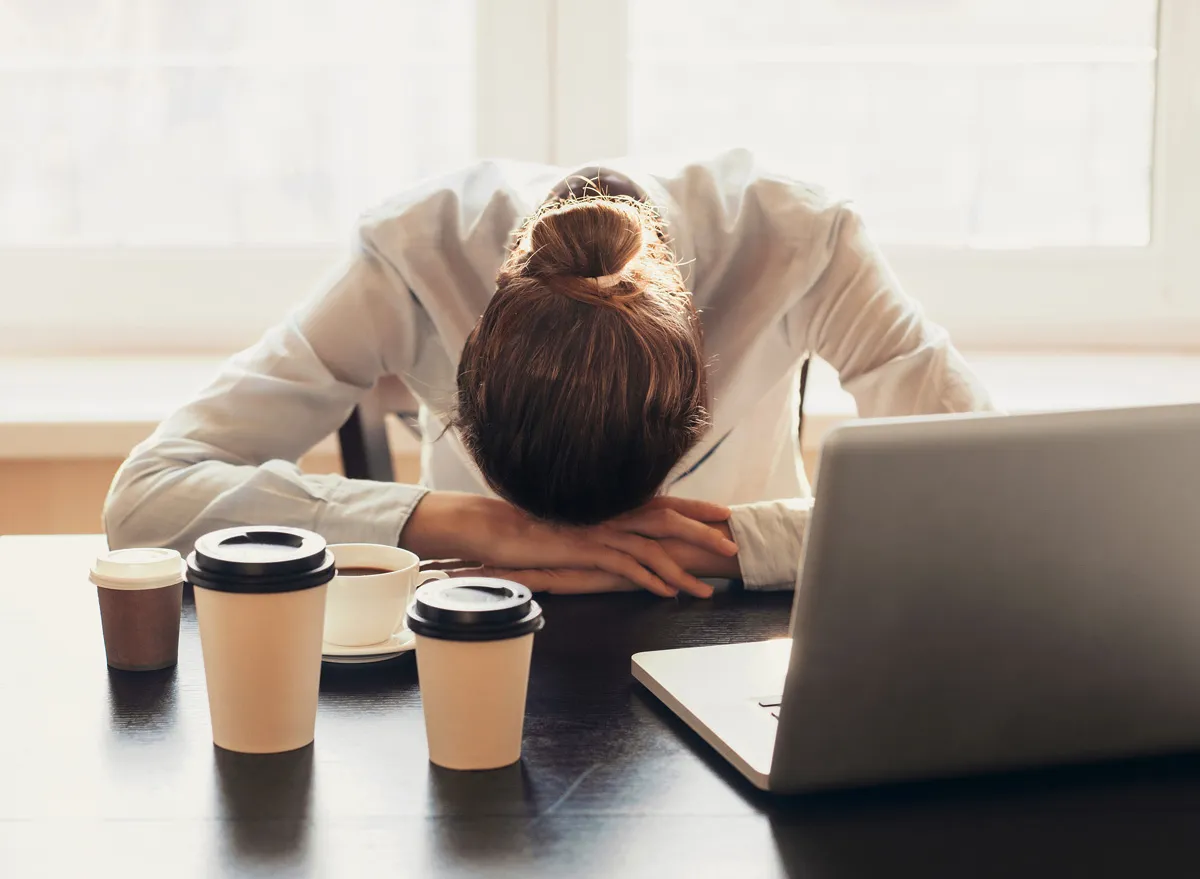
Bannan says that while the amino acid in turkey called tryptophan is often to blame for post-meal fatigue, it actually may not be the sole reason you feel ready for a nap after a large Thanksgiving dinner.
“Eating a big meal, especially one high in carbohydrates, takes a lot of energy for the body to process,” she says. “Blood is redirected from other areas of the body to the digestive system to work on breaking down the big meal, which can lead to fatigue.”
Not to mention, eating a lot of foods full of simple carbohydrates such as sugary foods like pecan pie and cheesecake can cause your blood sugar to spike, which of course will eventually lead to a crash and cause you to feel ready for a nap.
You feel gassy.

We hate to say it, but it’s the truth.
“When you overeat, digestion slows and your stomach expands to accommodate the food, which pushes on your other organs. As a result, you may feel gassy, bloated, and that your clothes are too tight,” says McGrane.
Nausea, abdominal discomfort, and fatigue can also all be attributable to indigestion. The best way to avoid it is to make sure you eat slowly during Thanksgiving dinner and pay careful attention when you feel full.
“After all, you can always eat more later if you get hungry again,” she adds.
You feel anxious and irritable.

“Refined carbohydrates include foods made from white flour and sugar. When grains have been stripped of their fibrous and nutrient-dense outer layer in processing, all that is left is a carbohydrate serving devoid of nutrition,” says Greene. “These highly processed carbs cause a spike in blood sugar and a cascade of insulin to pick up the sugar and bring levels back down.”
It’s this rapid rise and fall of blood sugar that occurs throughout a heavy Thanksgiving dinner that, during the night while sleeping, triggers the release of epinephrine. Greene says epinephrine is a hormone that can cause rapid heart rate, sweating, and shakiness. As a result, your sleep is disrupted and you may feel on edge or even a tad bit anxiety-ridden the next day.
“Aim to replenish the next day with lots of fresh vegetables, lean proteins, and healthy fats, and skip the leftover bread and sweets,” she says.
You can’t sleep that night.
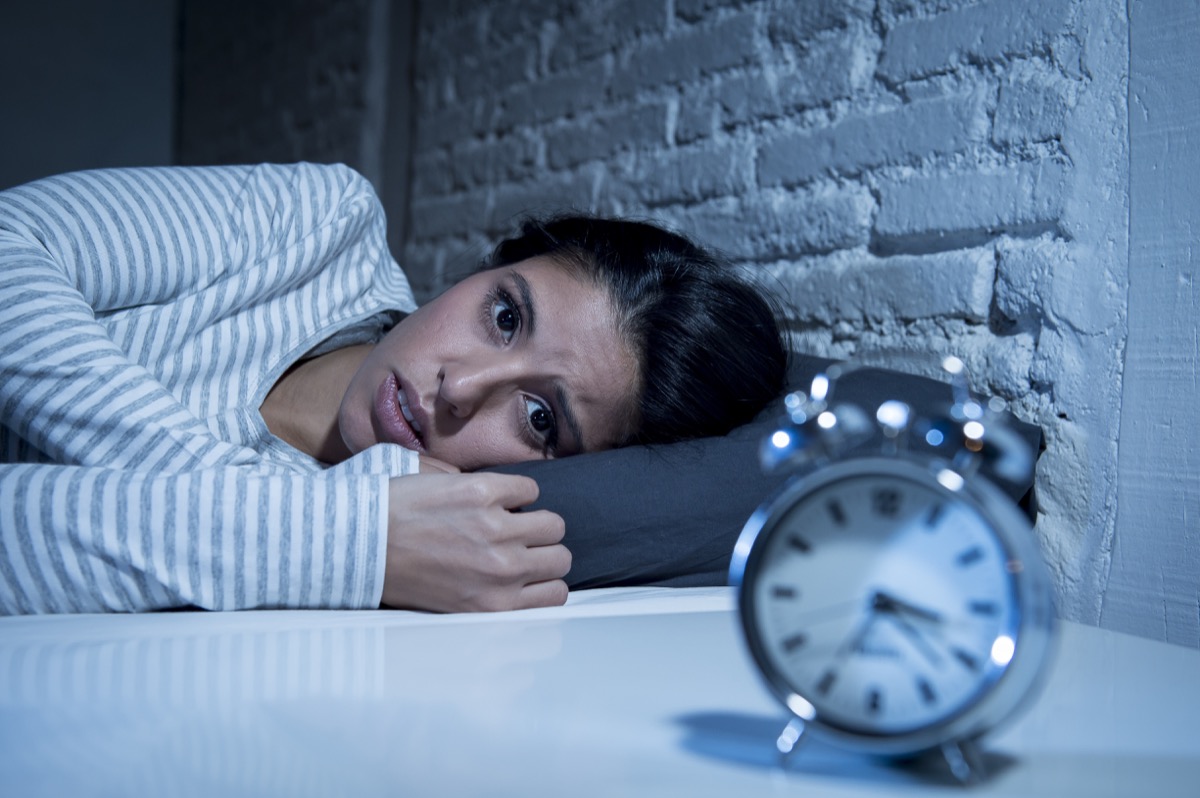
There’s another way Thanksgiving dinner can negatively affect your sleep and that’s by overeating.
“Your body has a circadian clock that controls not only your sleep cycles, but also the natural rise and fall of hunger hormones,” explains McGrane. “When you overeat, you disrupt this natural rhythm, which can negatively affect your sleep quality that night.”
Again, the way to prevent this issue is to be mindful of hunger cues and portion sizes.
You have a headache.
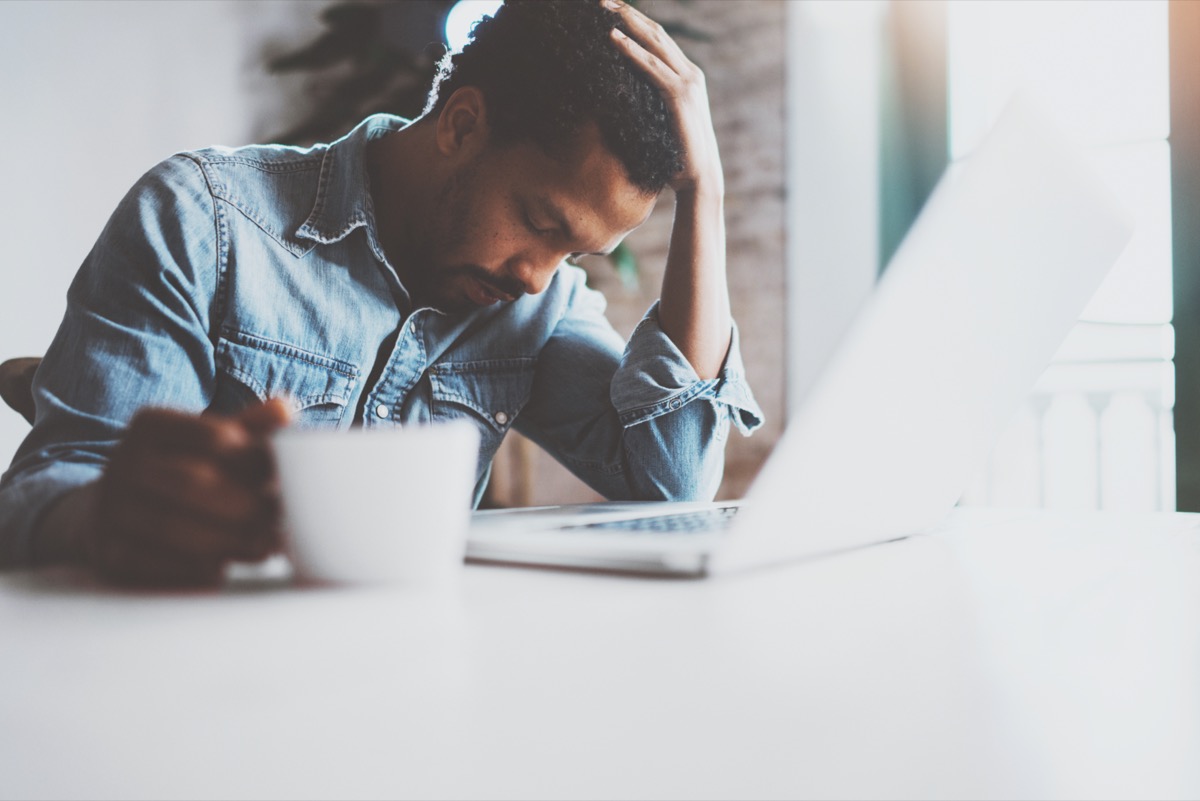
“Eating a salt-heavy meal, not drinking enough water, and having a few alcoholic beverages can leave you with a pounding headache, even without the hangover,” says Bannan. “High amounts of salt in a short period of time can contribute to higher blood pressure, and alcohol is also a diuretic. The combination of both can contribute to headaches in some.”
The solution? Drink plenty of water throughout the day, including at the dinner table, as well as after dinner. Instead of going for that extra glass of red wine post-meal, opt for a glass of ice-cold water.
Your pants are feeling tight.
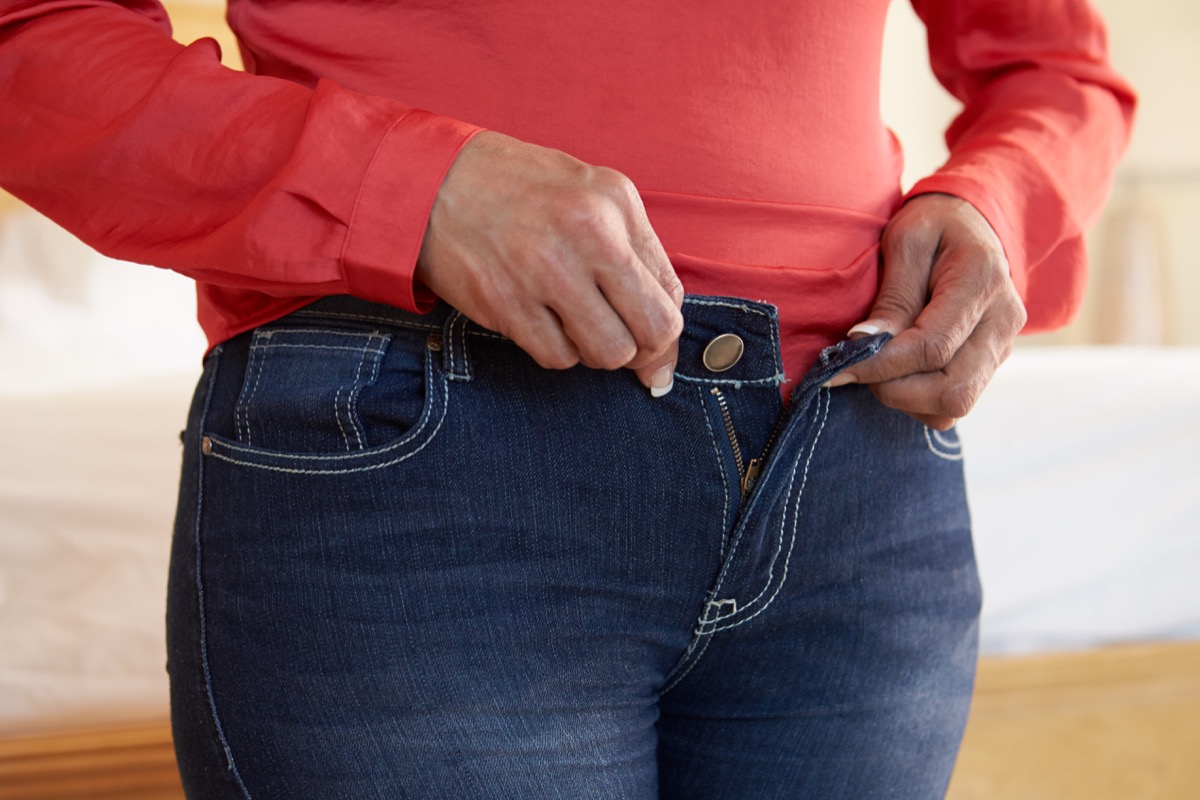
Greene says that one generic box of stuffing contains 5,300 milligrams of sodium, which is more than double the recommended 2,300 milligrams one should consume at most each day.
“This might not be a problem if the stuffing was spread across the 12 servings the box makes, but most dinner guests eat way more than one serving,” she says. “The overconsumption of sodium, coupled with alcoholic beverages, is a recipe for dehydration and water retention.”
A trick to avoid this? Greene suggests consuming a minimum of half of your body weight in ounces of water throughout Thanksgiving day and on Black Friday. So, for example, if you weigh 160 pounds, you would aim to drink 80 ounces in water, or about 10 glasses of water both days.
You may feel hungrier than usual the next day.

This seems a bit backward, right? Well, here’s the situation. When you overeat, your body goes into overtime to digest the excess calories, and the next day it can feel exhausted. Fatigue then signals hunger, and what lends quick energy? Carbs, of course, because they are the most easily digested. Carbs begin digesting as soon as they hit your mouth by an enzyme in the saliva called amylase. Fat and protein, on the other hand, don’t truly begin to break down until they reach the small intestine and the stomach, respectively.
So, you can see that there’s a lot going on when you overeat on a food holiday like Thanksgiving!